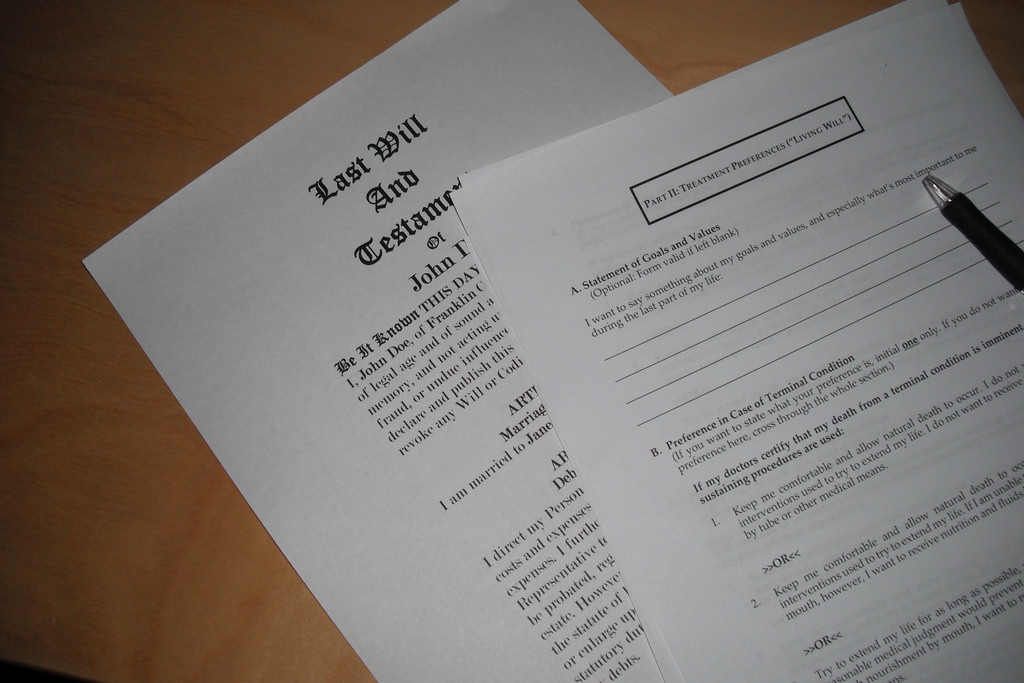North Carolina recognizes a cause of action for tortious inference with expected inheritance. This cause of action can be confused with tortious interference with prospective economic advantage, which occurs in the context of a contract or potential contract. Conversely, tortious interference with expected inheritance occurs in the context of a will or estate, rather than in the context of a contract or potential contract. Further, unlike a cause of action for undue influence, which permits recovery by the testator (the person executing the will), tortious interference with expected inheritance permits recovery by the individual expecting to benefit from the testator’s will. The Elements To prove tortious interference with…
-
-
Six Ways to Challenge a Will’s Validity
Wills must meet several basic requirements to be valid and enforceable under state law. If any of the below factors are at work, then a will’s validity may be challenged. (1) Undue Influence Undue influence exists when a person uses coercion to influence the testator (the person creating a will) into executing a will that does not accurately reflect the testator’s true wishes. There are several red flags to keep in mind if you are suspicious a loved one’s will is the product of undue influence. Unusual dispositions of property, sickness and vulnerability of the testator to undue influence,…
-
When Heirs Cry: Claiming Prince’s Paternity
The inheritance saga in the wake of Prince’s death continues. Since reportedly dying without a will, potential heirs are coming of the proverbial woodwork and claiming they are entitled to a piece of Prince’s fortune. According to Minnesota law, if there is no will, the deceased’s estate first goes to his spouse. If there is no living spouse, then the estate would go to the deceased’s children. If there are no living children, then the parents inherit the estate. Finally, if no living parents, the estate would pass to the deceased’s parents’ descendants (i.e., the siblings of the deceased). …
-
What Happens if You Die Without a Will? Taking a Lesson from Prince
On Tuesday, Prince’s sister, Tyka Nelson, filed an emergency motion in Carver County District Court requesting that the Court appoint a special administrator to gather and protect Prince’s assets. She also claimed that, to the best of her knowledge, no will existed. The assets are estimated to be worth $100 – $500 million and are comprised of real estate holdings, including his Paisley Park Complex outside of Minneapolis; his music catalog, including licensing rights for television, film, and commercials; and album sales. It is estimated that in the week after his death, 2.8 million of his songs – and over 650,000 albums – were sold…
-
N.C. Court of Appeals: Caveators Were Not Prejudiced By Dead Man’s Statute Since the Jury “heard the gist of caveators’ evidence.”
In 1960 Charles Pickelsimer (“Charles”) inherited significant stock holdings in a family telecommunications company.[1] Over the next 45 years, Charles gave his children and grandchildren stock certificates as gifts. When he sold the company in 2008 for $65 million, Charles and his children received significant cash distributions. In 2009, Charles and his wife executed an estate plan to protect their assets, and their children were the primary beneficiaries. Charles was diagnosed with mild dementia and memory loss in January 2010, and his wife died in March of that year. His condition continued to subsequently decline. Charles executed a new estate plan in August 2010 (“2010…



